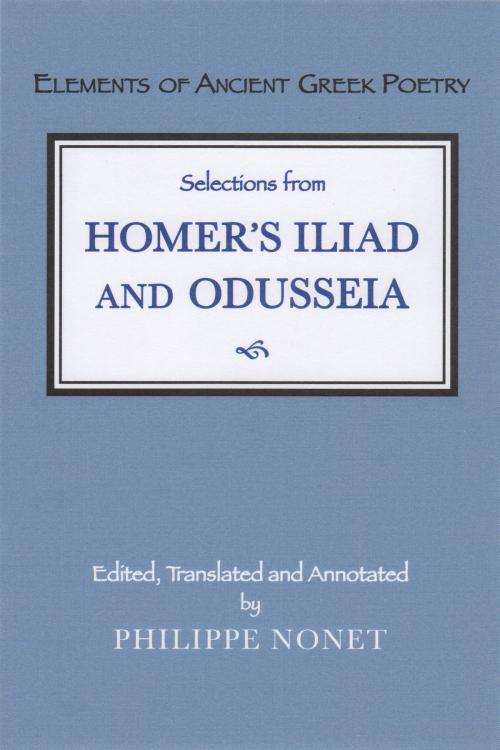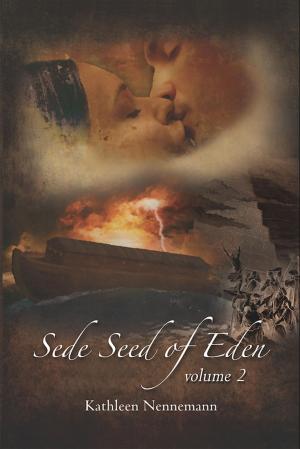| Author: | Philippe Nonet | ISBN: | 9781483574899 |
| Publisher: | BookBaby | Publication: | September 1, 2016 |
| Imprint: | BookBaby | Language: | English |
| Author: | Philippe Nonet |
| ISBN: | 9781483574899 |
| Publisher: | BookBaby |
| Publication: | September 1, 2016 |
| Imprint: | BookBaby |
| Language: | English |
This volume is the first in a short series of introductions to ancient Greek poetry. It is intended for people, young and older, who form an interest in discovering great poetry, or indeed great art in general. The distinctive accomplishment of great art is the opening of a world. To discover it is to transpose oneself into the world it opens. Translation, and the reading of translations, are but a step on the way through which one undergoes this illuminating work of language. The selections from Homer's Iliad and Odusseia confine themselves to the highest moments of epic poetry in the work of Homer. Repetitive scenes of combat, in the Iliad, or of banquets and speeches, in the Odusseia, are omitted, but the large outlines of the two poems are preserved, so that the stories can be followed with ease. The translation seeks above all to preserve the terseness and sobriety of Homer's writing. The usual verbosity of English, especially "poetic" English, is utterly contrary to the noble tone of Homer. The translation attempts also, insofar as possible, to follow the articulation of the Greek text into separate verses, partly in order to respect the way thoughts unfold in Homer, partly to ease the work of readers who may wish to move from English to Greek, or vice versa. Annotations have been kept to a minimum, and focus on explaining basic themes of the language and world of Homeric heroes, that are quite alien to modern day common sense.
This volume is the first in a short series of introductions to ancient Greek poetry. It is intended for people, young and older, who form an interest in discovering great poetry, or indeed great art in general. The distinctive accomplishment of great art is the opening of a world. To discover it is to transpose oneself into the world it opens. Translation, and the reading of translations, are but a step on the way through which one undergoes this illuminating work of language. The selections from Homer's Iliad and Odusseia confine themselves to the highest moments of epic poetry in the work of Homer. Repetitive scenes of combat, in the Iliad, or of banquets and speeches, in the Odusseia, are omitted, but the large outlines of the two poems are preserved, so that the stories can be followed with ease. The translation seeks above all to preserve the terseness and sobriety of Homer's writing. The usual verbosity of English, especially "poetic" English, is utterly contrary to the noble tone of Homer. The translation attempts also, insofar as possible, to follow the articulation of the Greek text into separate verses, partly in order to respect the way thoughts unfold in Homer, partly to ease the work of readers who may wish to move from English to Greek, or vice versa. Annotations have been kept to a minimum, and focus on explaining basic themes of the language and world of Homeric heroes, that are quite alien to modern day common sense.















